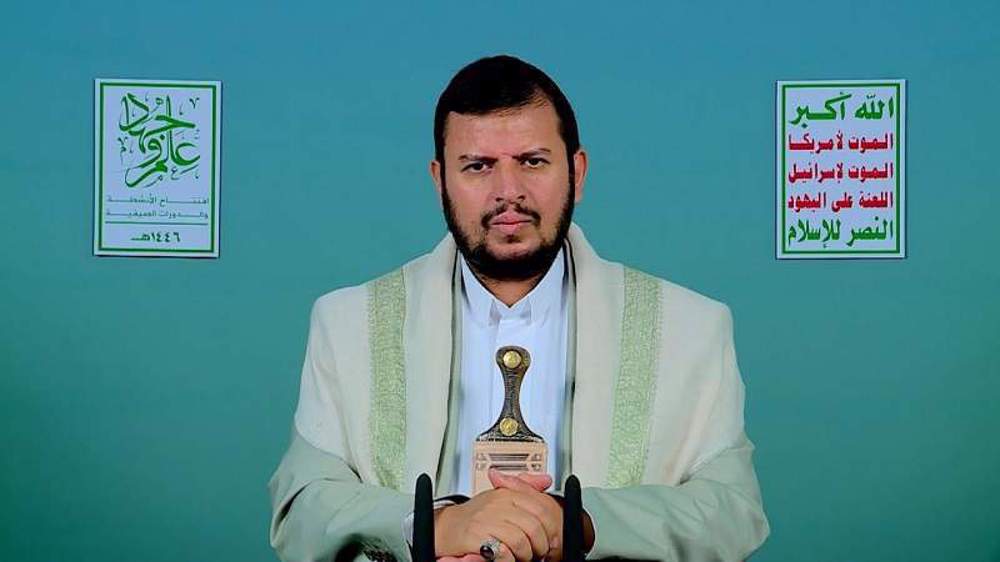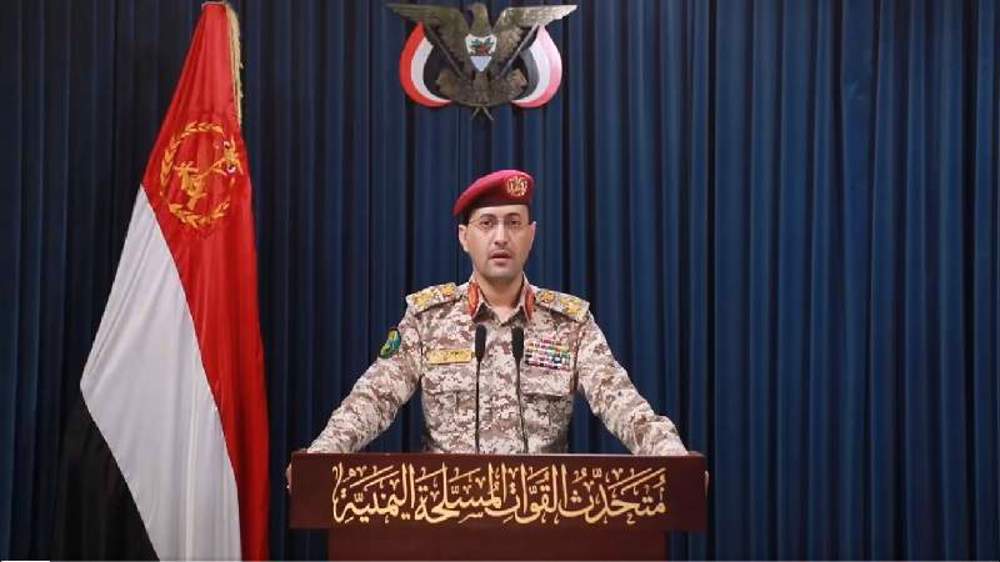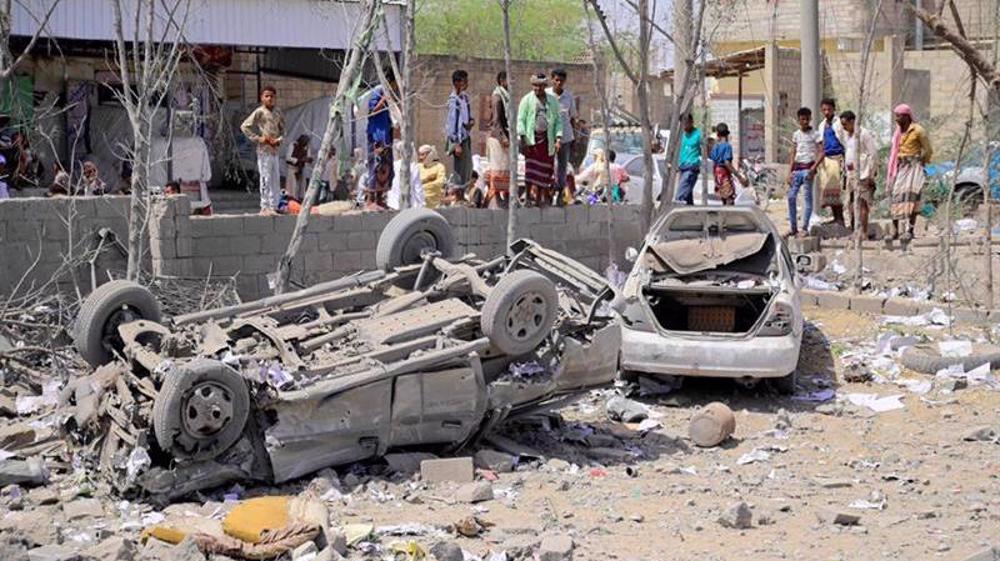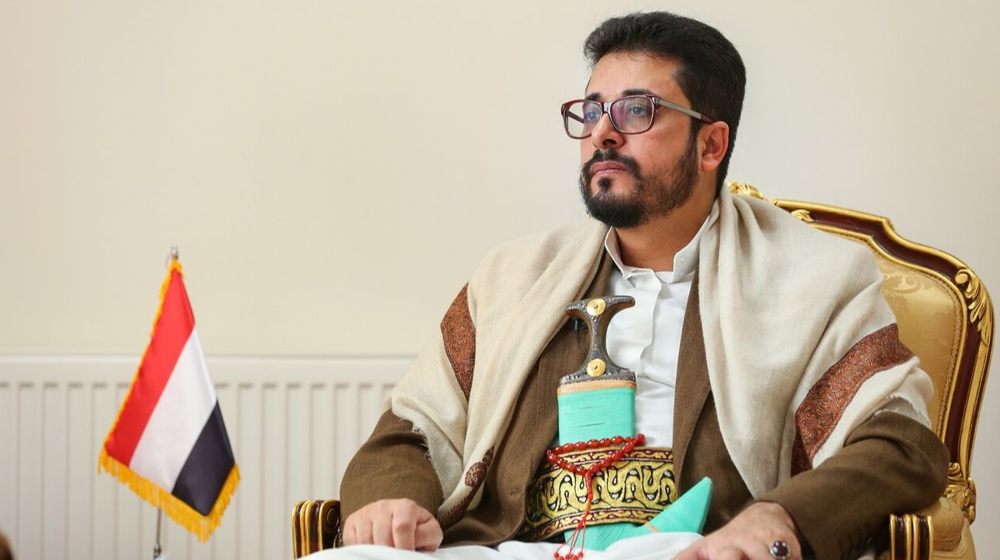Only Iran stood by Yemeni people in tough times: Yemen Ambassador
Yemen’s Ambassador to Iran has lauded the Islamic Republic’s unflinching support for the impoverished Arab country over the years of the Saudi-led aggression, saying it was only Iran that stood by the Yemeni people in hard times.
Ibrahim Mohammad al-Deilami made the remarks in an interview with Iran’s Mehr news agency on Sunday. He talked about roles played by various countries in the war on Yemen.
“Most countries are accomplice in the Saudi-American aggression against our country, except for one country, which is the Islamic Republic of Iran,” Deilami said.
“Iran stood by the Yemeni people and staunchly supported them and presented the cause of Yemen with all sincerity in international forums, and the Yemenis saw nothing but help from the Islamic Republic of Iran.”
Stressing that the Islamic Republic has since day one called for ending the aggression, lifting the blockade, sending humanitarian aid to Yemen and not interfering in its internal affairs, the Ambassador said, “Iran stood and stands by the Yemeni people in different forms and at all levels. These are the firm and honest positions of Iran from the first day to this moment.”
Deilami categorically dismissed claims that Yemen's popular Ansarullah resistance movement was following Iran and receiving weapons and military equipment from the Islamic Republic.
“In the face of this aggression, not only Ansarullah, but all Yemeni people from all sects, regions, tribes, parties and political forces participated. The aggressor forces led by Saudi Arabia and its supporters tried to undermine the people's resistance and make it seem that everything in Yemen is under Iran’s control,” he said.
“But the reality has proven this statement false and the Islamic Republic has repeatedly stated through the Foreign Ministry that this issue is a media game by the enemy.”
Underlining that the relationship between Iran and Yemen is not only based on diplomacy but also historical and religious ties, Deilami said, “Both countries are at the center of resistance and opposition to the Zionist-American project.”
The Ambassador fielded the question whether it is Saudi Arabia to decide the end of war or the other parties involved.
“Saudi Arabia is trying to insinuate through its media and soft power that the issue is in the hands of the Americans, and of course this is true and the Americans are complicit in this aggression and brutality, but if Riyadh is honest, it can get rid of all this pressure,” Deilami said.
“At the same time, this does not absolve Riyadh from taking responsibility for the war, rebuilding Yemen, and ending the military presence of all forces allied with it, be it the United Arab Emirates, Sudan, the United States or Britain.”
Deilami said Riyadh does not accept the responsibility of the war in Yemen in order to avoid the consequences of the aggression.
Saudi Arabia, he said, has another goal, which is to restore its influence in Yemen through political action and negotiation and presenting itself as a neutral and mediating country.
Saudi Arabia invaded Yemen in March 2015 in collaboration with a number of its allies and with arms and logistical support from the United States and several other Western states.
The objective was to bring Yemen’s former Riyadh-backed regime back to power and crush Ansarullah, which has been running state affairs in the absence of a functional government in Yemen.
While the Saudi-led coalition has failed to achieve its objectives, the war has killed hundreds of thousands of Yemenis and created the world’s worst humanitarian crisis.

Houthi: Intensified US aggression against Yemen failed

Yemen’s army thwarts two US attacks: Spokesman

US airstrikes target multiple sites across Yemen’s Sa’ada
VIDEO | British Medical Association cancels pro-Palestinian doctor’s speech
Trump admin. to freeze Brown grants, impose Harvard restrictions over pro-Palestinian protests
VIDEO | Yarmouk demonstrations condemn Israeli attacks on Syria, Palestine
VIDEO | Indian parliament approves controversial Muslim Waqf law
Yemen's army targets Tel Aviv, downs Giant Shark F360 drone in Sa’daa amid Israel’s genocide in Gaza
Islamic scholars issue fatwa urging Muslim nations to support Palestinian resistance
VIDEO | Trump trade war
Houthi: Intensified US aggression against Yemen failed








 This makes it easy to access the Press TV website
This makes it easy to access the Press TV website